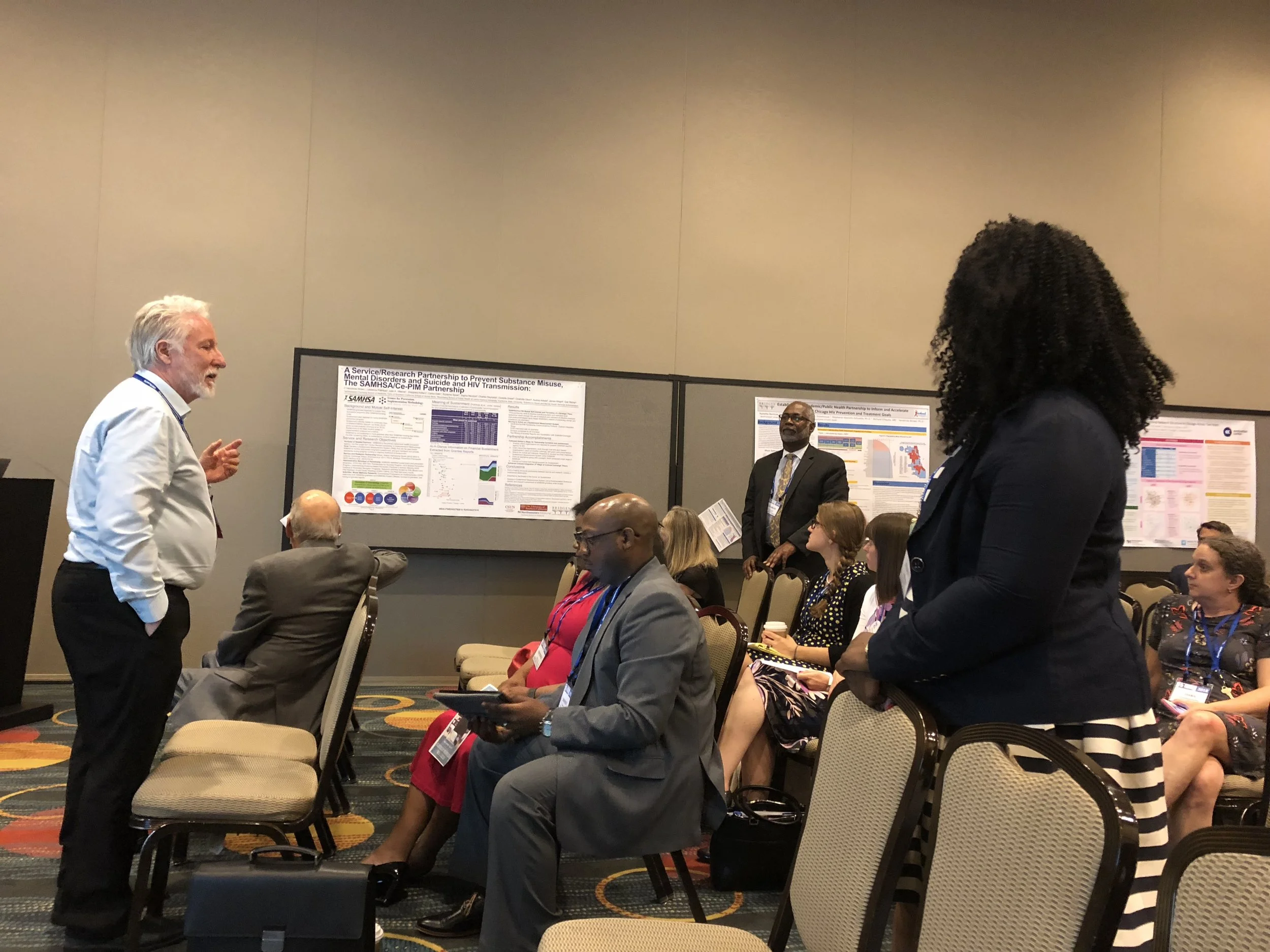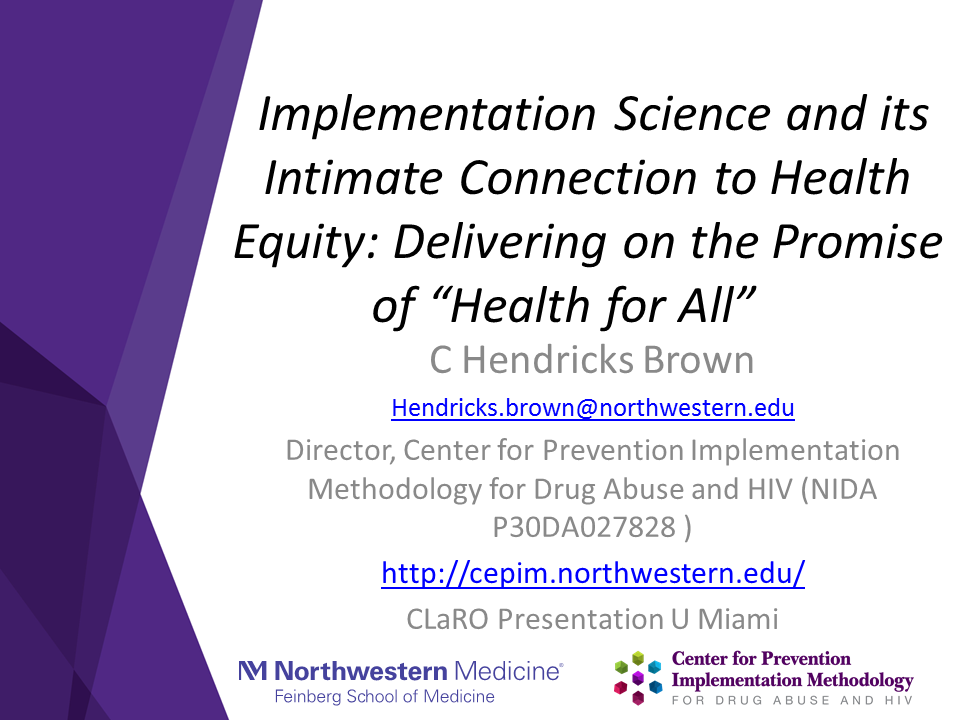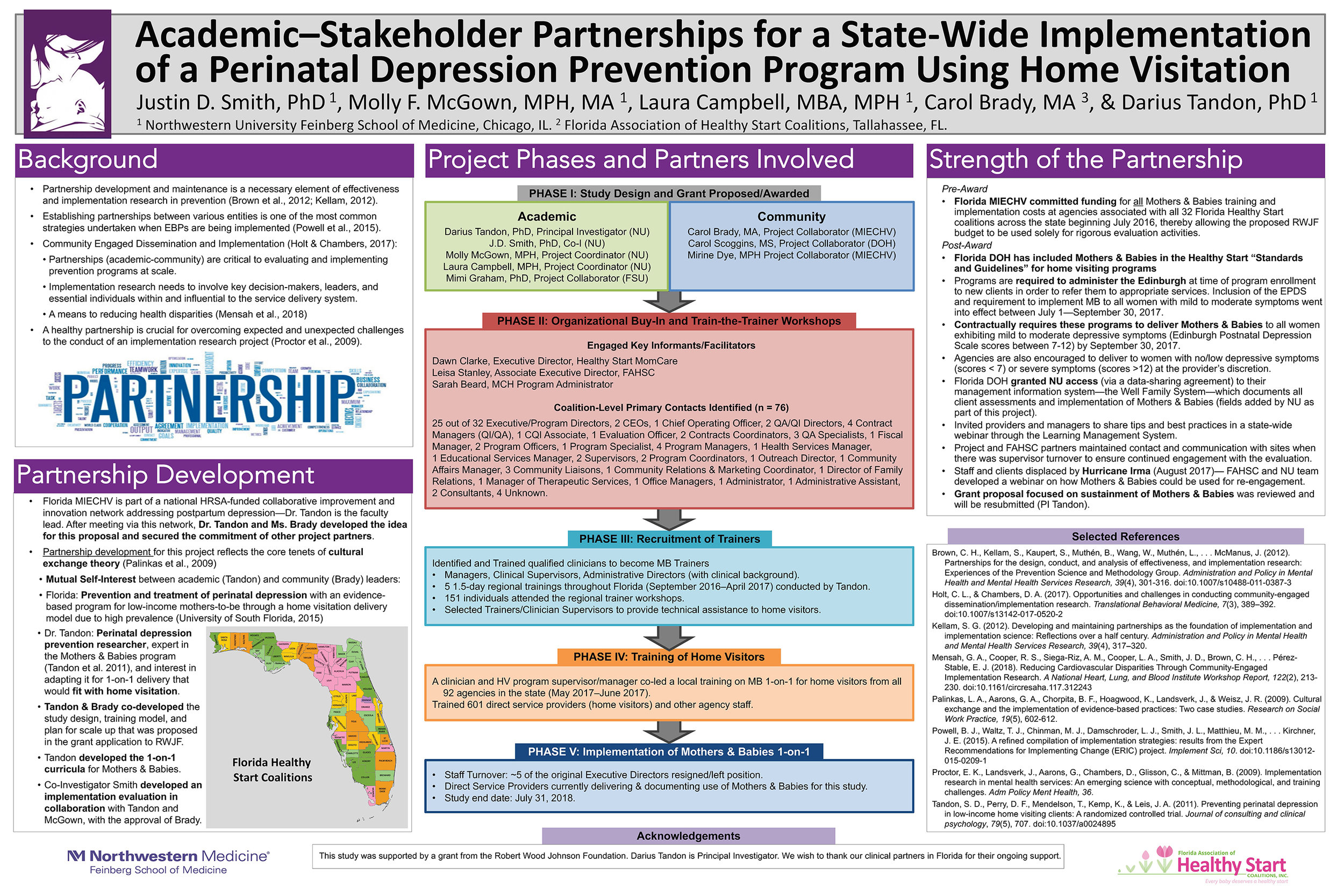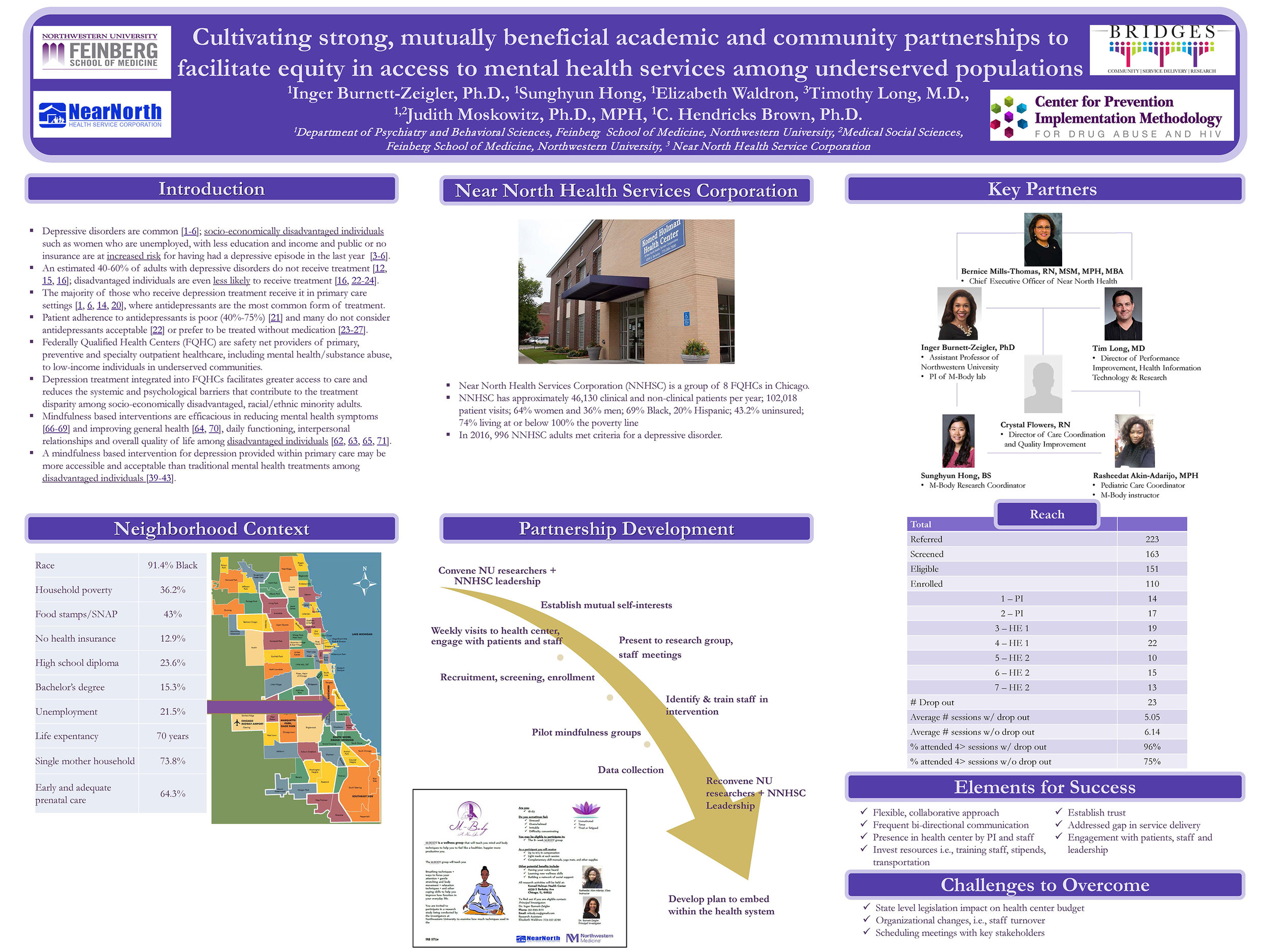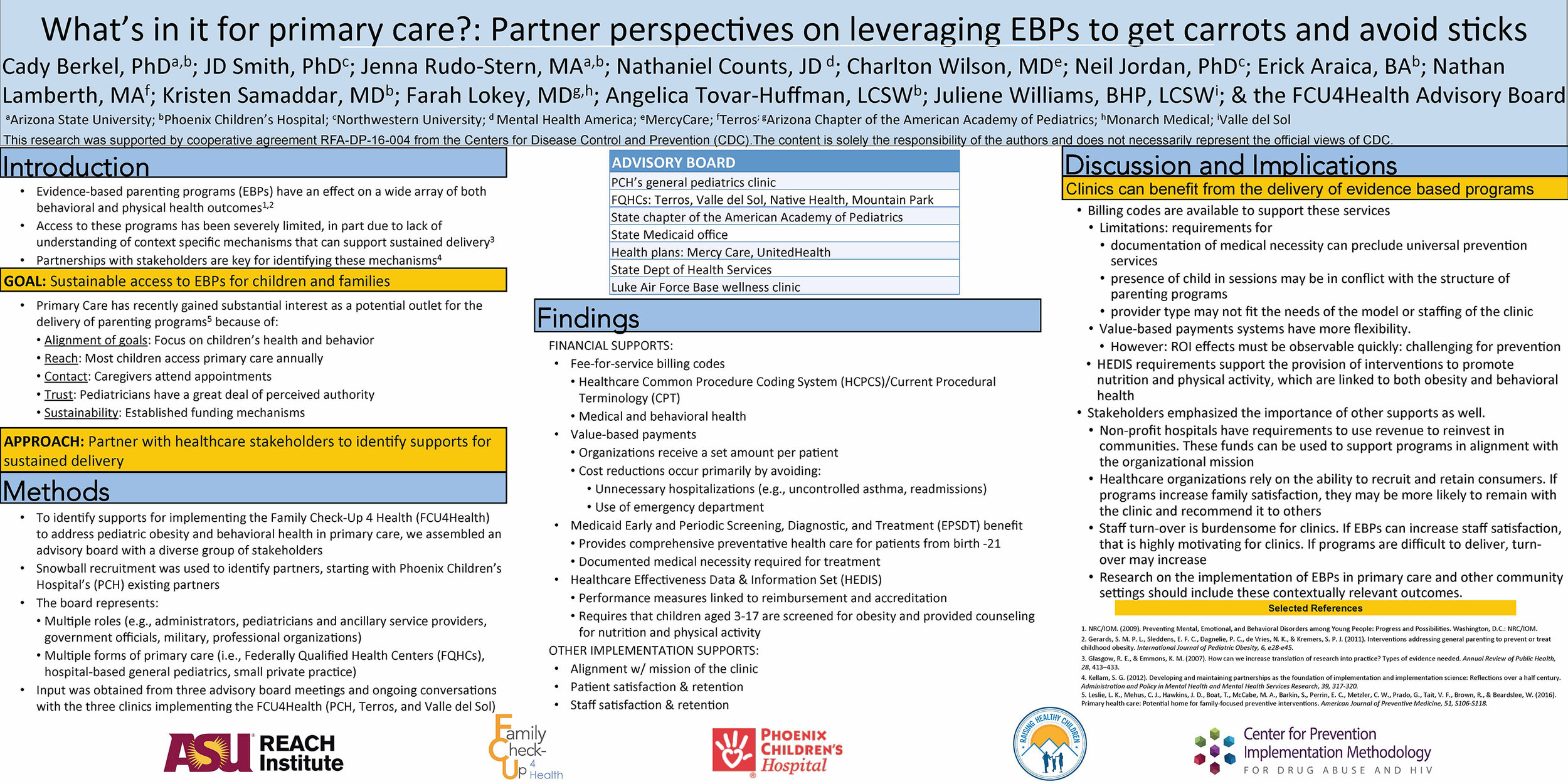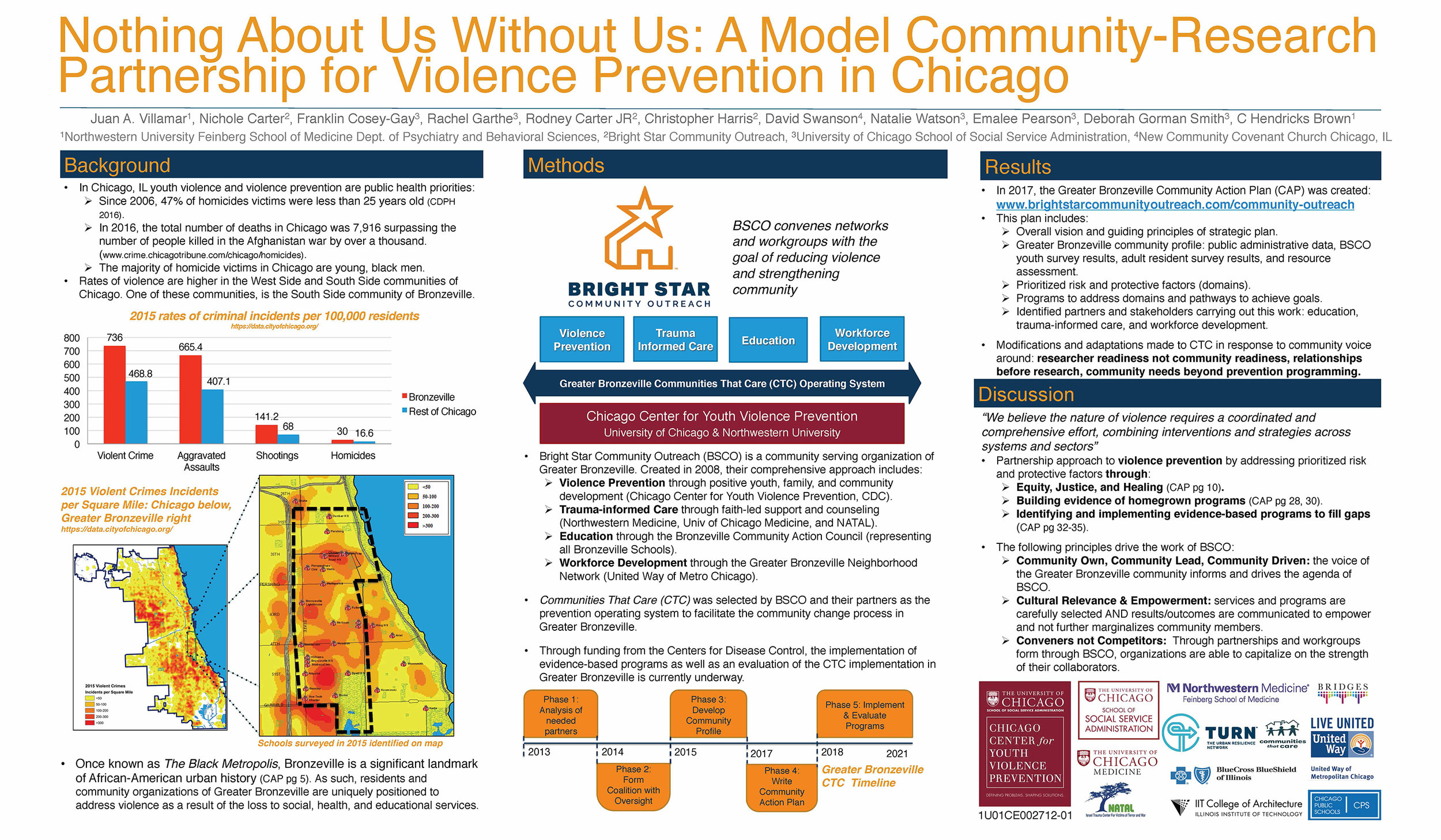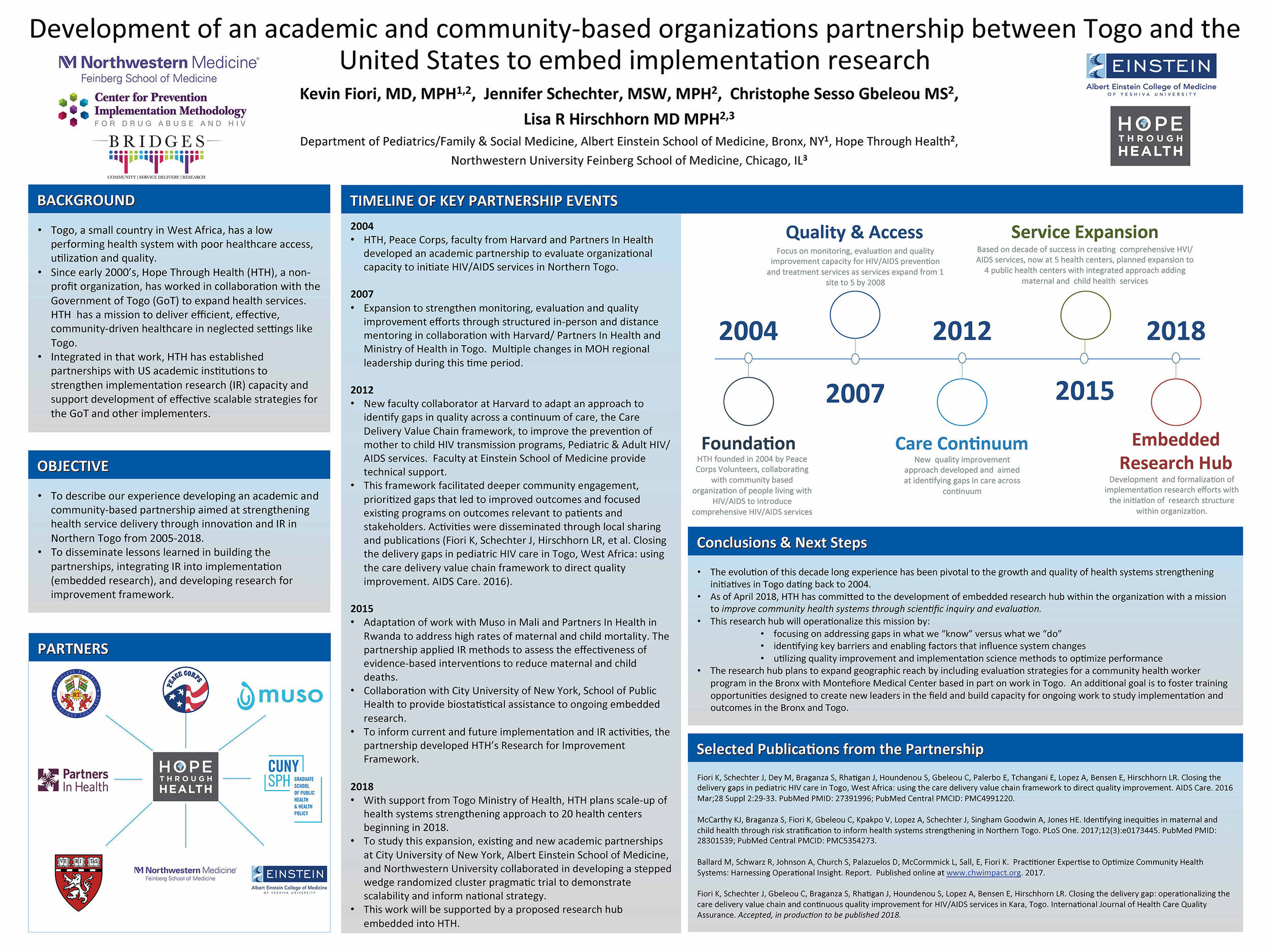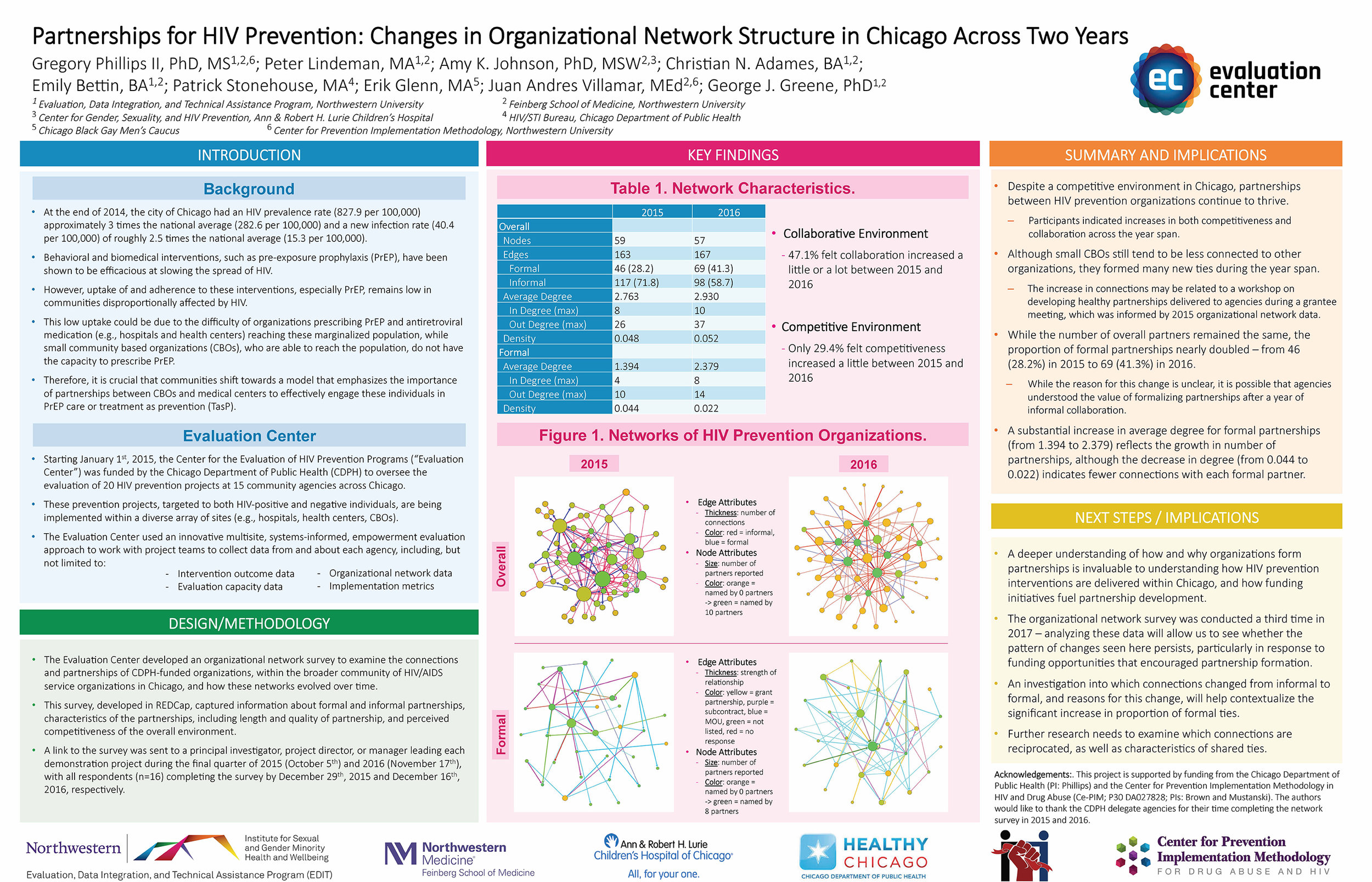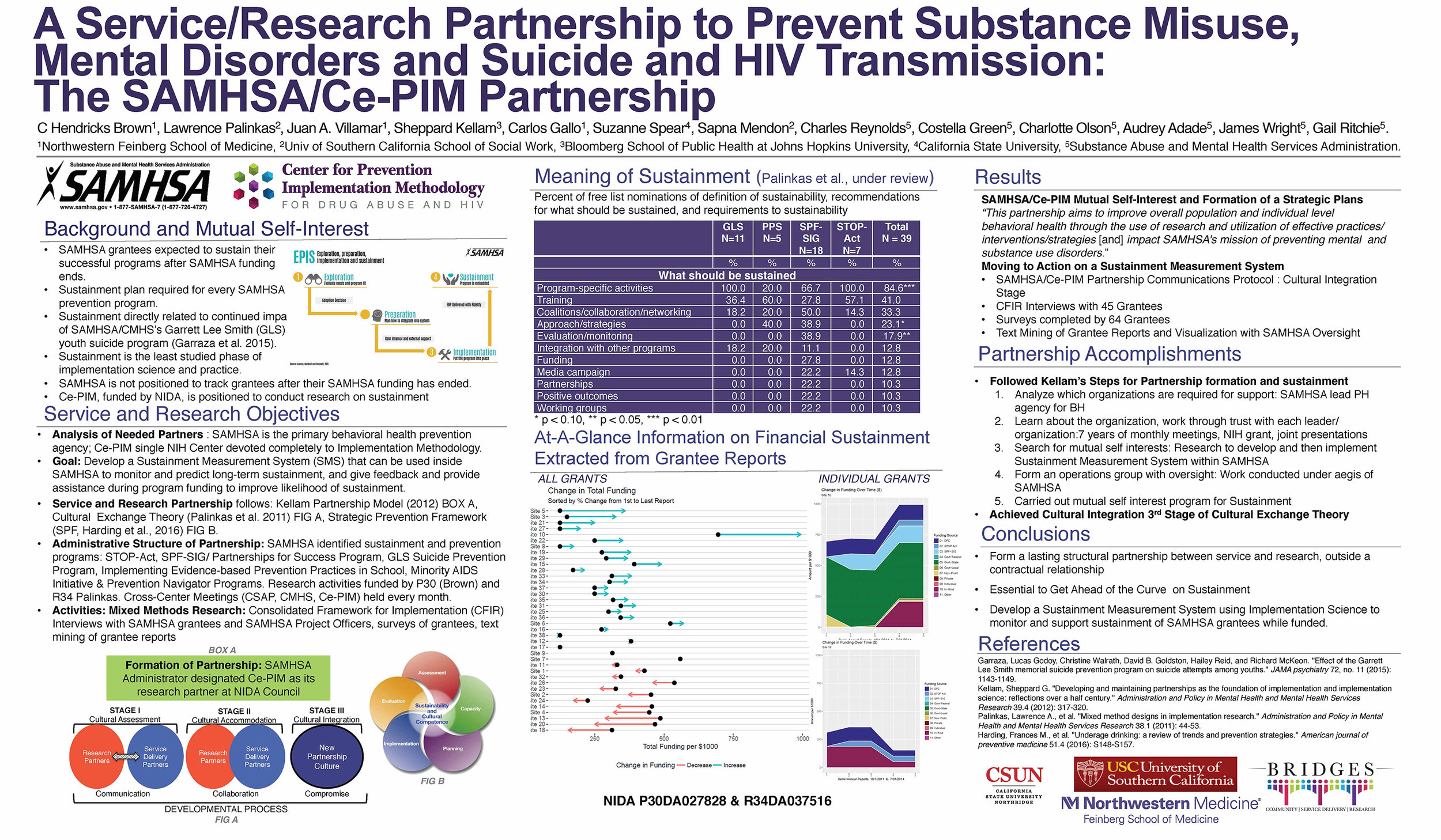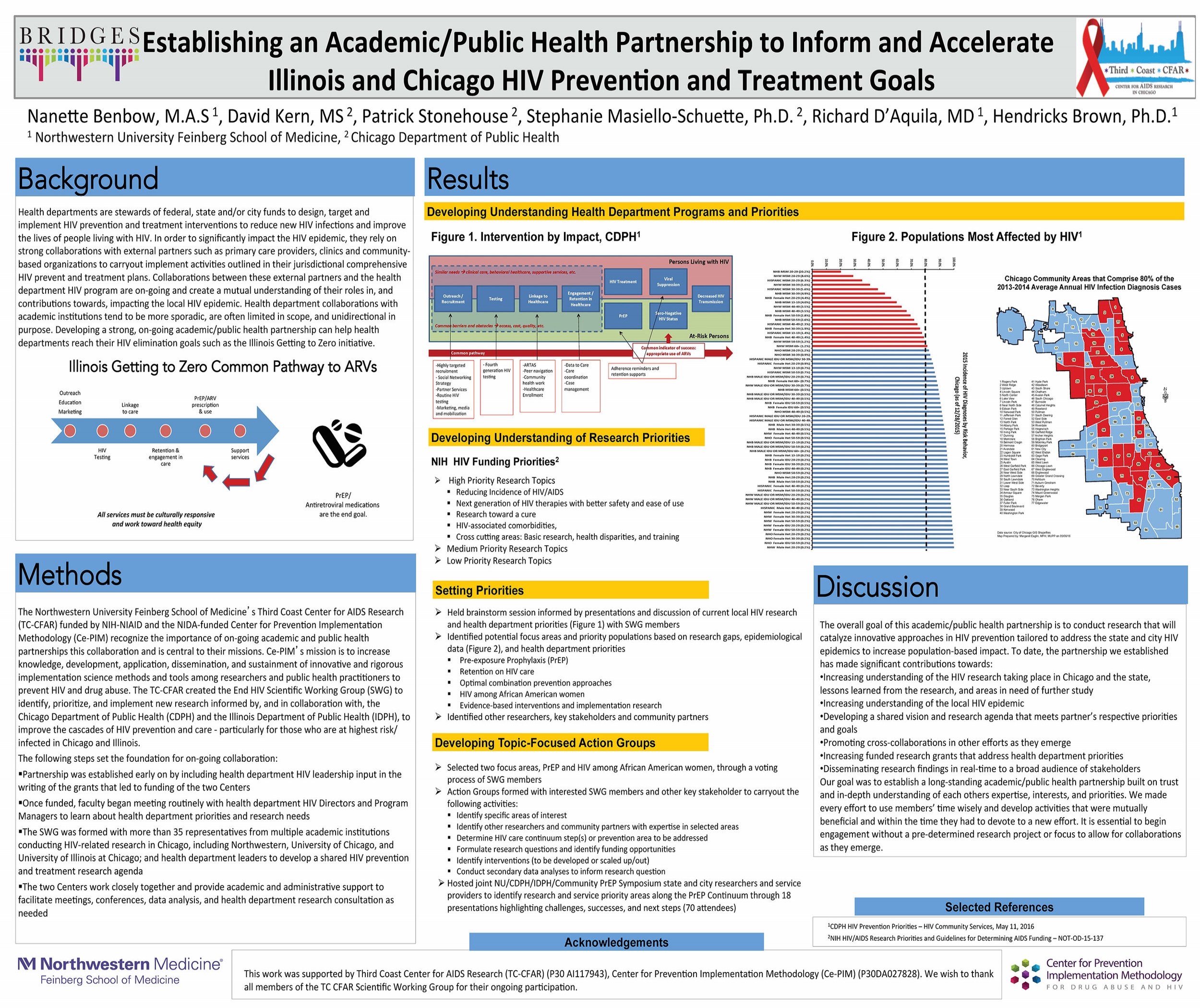Ce-PIM Presentations
Implementation Science and its Intimate Connection to Health Equity:
Delivering on the Promise of "Health for All"
Implementation Science has a unique opportunity to ameliorate health disparities and improve the health for all. But current research studies are not addressing the scientific inequities in building knowledge to address disparities among minorities and other populations experiencing historical or new disparities. We discuss three ways to advance such research using existing data, simulation modeling, and borrowing strength from existing related research studies, what we call scaling out. We also present a tool that aids in the design of rollout trials, including adaptations of stepped wedge designs, and show how this can focus a research design on addressing health disparities in implementation and hybrid designs.
SPEAKER: C. Hendricks Brown, PhD, Principal Investigator; Director of the Center for Prevention Implementation Methodology (Ce-PIM) at Northwestern University’s Feinberg School of Medicine
EVENT: 2019 Summer Training Institute on Latino Health Disparities | CLaRO | University of Miami
DATE: August 9th, 2019
Organized by Institute for Sexual and Gender Minority Health and Wellbeing, the Center for Prevention Implementation Methodology for Drug Abuse and HIV, Advocates for Youth, and the AIDS Foundation of Chicago, with support from the Illinois Safe Schools Alliance. This 2.5 hr symposium gathered leaders in advocacy and research from community, academic, and federal levels to discuss the current state of research for LGBTQ youth health and wellbeing with a focus in schools and family systems. A portion of the symposium was dedicated to an open Q&A section lead by the panel presenters and ICAH youth leaders.
Keynote Speaker: Dr. David Purcell, JD, Ph.D., Deputy Director for Behavioral and Social Science, Center for Disease Control and Prevention
Panel Presenters:
Dr. Guillermo (Willy) Prado, Leonard M. Miller Professor of Public Health Sciences, Director of the Division of Prevention Science and Community Health at the Miller School of Medicine, and Dean of the Graduate School, University of Miami
Dr. Dorothy Espelage, Ph.D., Professor of Psychology, University of Florida.
Dr. Brian Mustanski, Ph.D., Director of the Institute for Sexual and Gender Minority Health and Wellbeing, Professor of Medical Social Sciences, Psychiatry and Behavioral Sciences and Weinberg College of Arts and Sciences, Northwestern University
Youth leaders from the Illinois Caucus for Adolescent Health
Remarks:
Dr. Karen Parker, Ph.D., M.S.W., Director of the Sexual & Gender Minority Research Office, National Institutes of Health
Debra Hauser, President, Advocates for Youth
2017 Society for Prevention Research Annual Meeting
The Promise of Implementing Family-Focused Prevention in Primary Care Settings
Ce-PIM Researcher J.D. Smith presented a TED-like talk at the 2017 Annual Meeting of the Society for Prevention Research. He has been working with his collaborators, Christopher Mehus, Carol W. Metzler, John Kjobli, Guillermo Prado, and J. David Hawkins, to implement a family-focused prevention program, Family Check-Up, in primary care settings. In Part 2 of this 6-part topic, JD discusses organizational strategies for implementing parenting in primary care.
View the additional parts of this presentation by visiting the links below.
Part I: Christopher Mehus
Part III: Carol W. Metzler
Part IV: John Kjobli
Part V: Guillermo Prado
Part VI: J. David Hawkins
Questions and Answers
2018 Society for Prevention Research Annual Meeting
Poster Forum: Beyond Engagement & Fit: Building Partnerships to Embed and Sustain Prevention Science in Systems
Organized by our very own Juan Villamar, this forum presented the central role of partnership building and partnership maintenance when researchers engage among themselves and with systems around initiating, adapting, implementing, evaluating, disseminating, and sustaining prevention science. Most often, partnership building and partnership maintenance are perceived as nonscientific and non researcher-led, and as a threat to scientific capital and research integrity. Failures in the use of prevention science by health systems are due in part by the lack of investment in training and guidelines for partnership building.
We presented eight examples of researcher-initiated strategies involving communities, local health organizations, national health organizations, and federal organizations that emphasize key principles for partnership creation and maintenance. Each individual poster highlighted:
The structural characteristics of the system(s) being engaged
Strategies for identifying, establishing, and measuring mutual self-interest, a key ingredient in successful partnership building
System(s) level power dynamics and successful power negotiations
Detecting change in the system(s) as a result of the partnership
Maintenance through partnership crises management.
Comparing across these eight partnership examples, we examined the unique and shared characteristics of the strategies employed to carryout each key principle for partnership creation and maintenance, their application in different health systems, what success looks like, and lessons learned that further the relevance of prevention science to systems.
The discussion was led by Dr. Sheppard Kellam, who has contributed significantly to the field of prevention science and has been a strong proponent for research to operate under the aegis of an organized community board that represents both community values and scientific principles. You can view the handout shared during our discussion by clicking the button to the right.
Click the links below to view each poster and its abstract.

